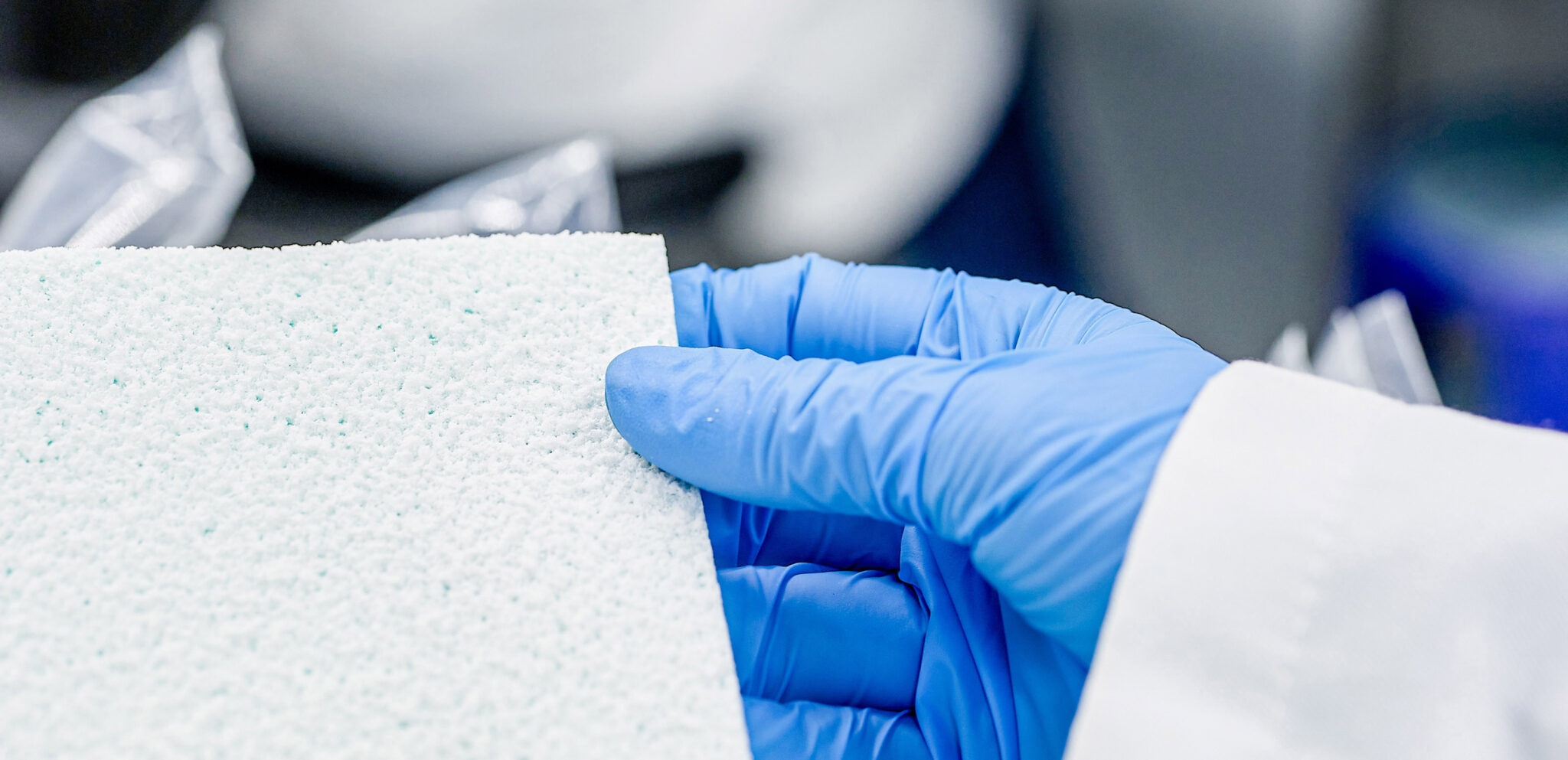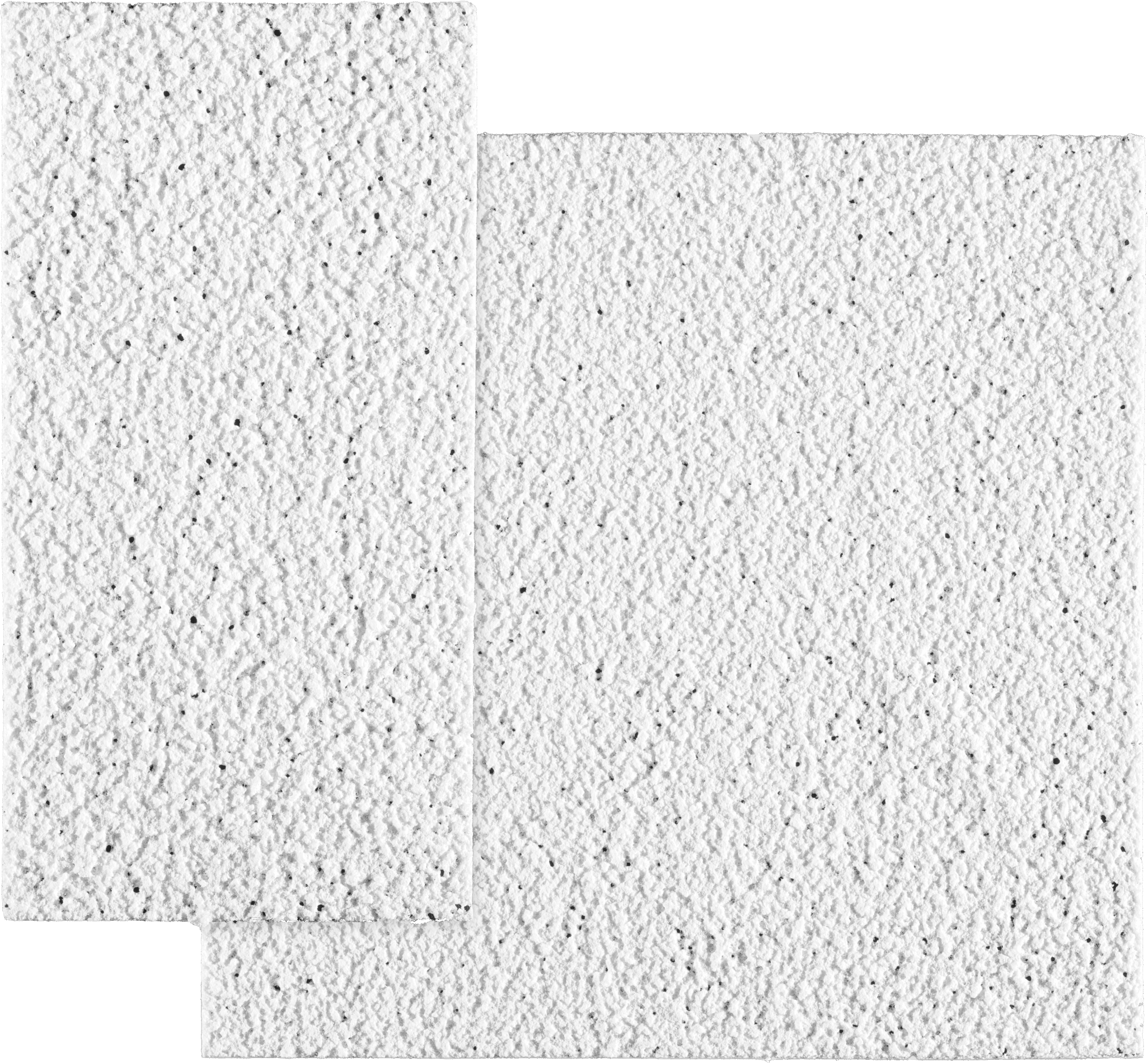Wound closure matrix
PMI developed SUPRA SDRM® as a proven wound closure matrix optimized for the treatment of difficult-to-heal wounds. The product also contains SUPRA EPT™, the technology developed for SUPRATHEL®.
Pore size distribution
SUPRA SDRM® combines the benefits of SUPRATHEL®‘s microporous structure with additional larger pores which allow blood vessel ingrowth for the treatment of chronic and difficult-to-heal wounds.
SUPRA SDRM® has the ideal pore size distribution for rapid wound healing:
• The small pores (3-12 µm) support initial cell migration.1
• The large pores (50 – 600 μm) and high porosity lead to cell attachment and vascularization.2,3
Ideal pore size
Ideal pore size distribution of SUPRA SDRM® for wound healing in µm. Pores greater than 50 µm promote vascularisation, while pores between 3 and 12 µm promote cell migration.1–3
SUPRA SDRM®
Collagen
Average number of weeks for SUPRA SDRM® to achieve complete healing compared to collagen.4
SUPRA SDRM®
Collagen
Cumulative incidence of healing of SUPRA SDRM® and collagen after 12 weeks.4
Composition
SUPRA SDRM® is a purely synthetic product and therefore does not bear any of the potential residual risks, that can occur with biological products of human or animal origin.PMI’s SUPRA EPT™ incorporates a unique and proprietary copolymer which leaves only CO2 and H2O as degradation products SUPRA SDRM® contains a bimodal foam membrane structure, that, based on the literature, has the optimal combination of small and large pores – smaller pores promote cell migration while the larger, interconnected pores support vascularisation. This unique bimodal pore structure is a proprietary feature of PMI.
Polymer:
Lactide-base copolymer
Metabolism:
Hydrolytically (to CO2 and H2O)
Thickness:
1.5 – 2.1 mm
Sterilization:
Gamma sterilization
Porosity:
> 85%, pores 3 – 600μm
Clinically proven
In a recent prospective, randomised trial, SUPRA SDRM® led to faster healing rates compared to collagen dressings.4
- SUPRA SDRM® reduced the required time for wound healing of diabetic foot ulcers by 44% compared to collagen-based dressings.
- Moreover, 90% of wounds treated were closed after 12 weeks compared to only 30% in the collagen group.
Supporting materials
Contact your local representative for additional materials.
|
Size# |
Quantity# |
| 5 x 5 cm |
1 |
| 9 x 9 cm |
1 |
| 9 x 12 cm |
1 |
| 18 x 9 cm |
1 |
| 18 x 18 cm |
1 |
1 Bruzauskaite et al. Cytotechnology. 2016 May;68(3):355-69 | 2 Chiu et al. Biomaterials. 2011 Sep;32(26):6045-51 | 3 Artel et al. Tissue Eng Part A. 2011 Sep;17(17-18):2133-41 | 4 Liden et al. Wounds. 2023 Aug;35(8):E257-60


